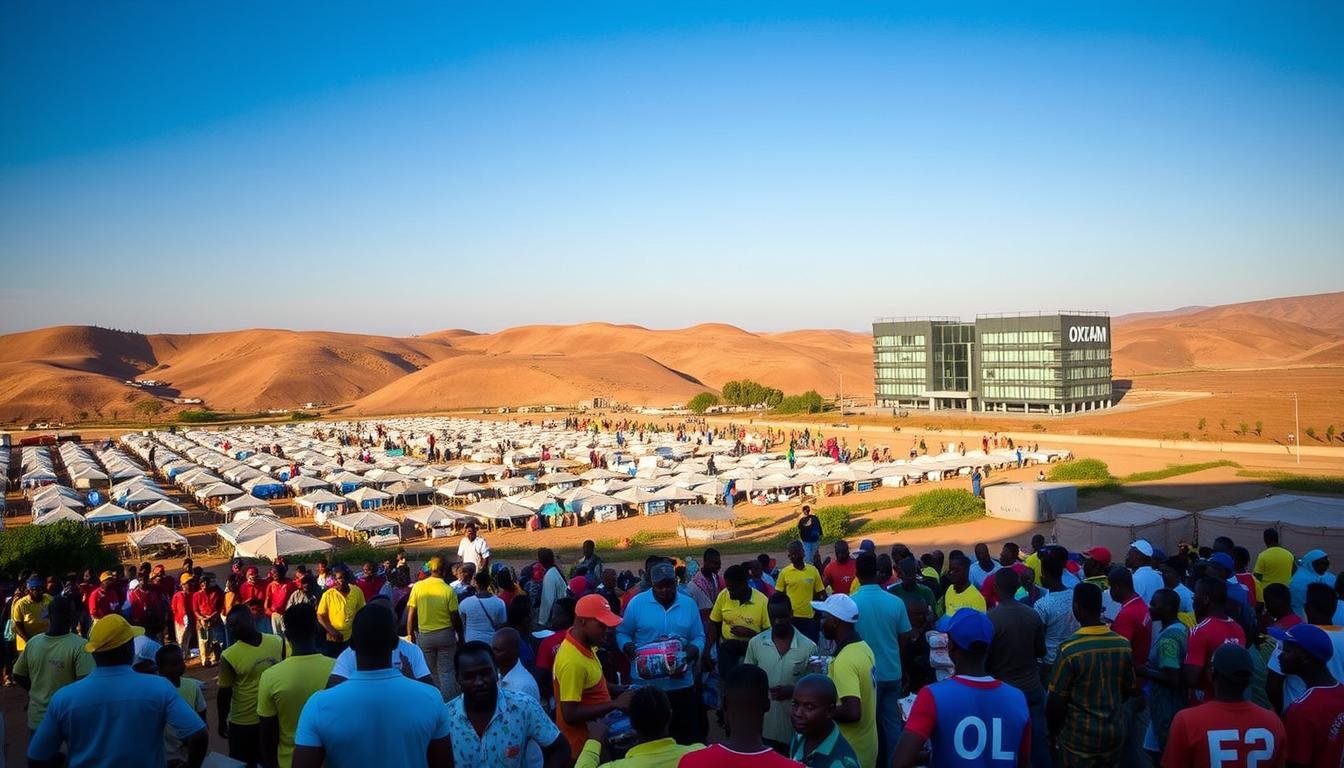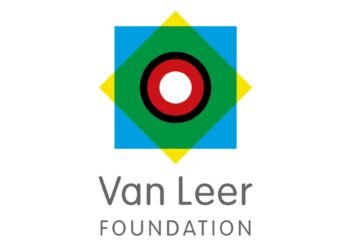Imagine a single institution with the resources and vision to tackle the world’s most pressing medical problems. The Wellcome Trust stands as that powerful force in global health research.
Founded in 1936 through the legacy of pharmaceutical pioneer Henry Wellcome, this London-based foundation has grown into the UK’s largest medical research charity. With an endowment of £37.6 billion, it ranks among the world’s wealthiest charitable organizations.
The trust’s mission focuses on supporting science to address urgent health challenges affecting everyone. Its massive funding—£1.1 billion spent in 2023/2024 alone—drives cutting-edge research across numerous fields.
From genomics to pandemic response, the organization backs innovative projects and scientists worldwide. Its global reach extends beyond the UK, including operations in Berlin since 2019.
This introduction explores how the Wellcome Trust transforms scientific discovery into real-world health solutions. We’ll examine its research programmes, public engagement efforts, and role in shaping healthcare’s future.
Key Takeaways
- The Wellcome Trust is the UK’s largest medical research charity with massive financial resources
- Founded in 1936, it focuses on solving urgent global health challenges through scientific research
- With £37.6 billion in endowment, it’s one of the world’s wealthiest charitable foundations
- The organization spent £1.1 billion on charitable activities in 2023/2024 alone
- It supports cutting-edge research across multiple scientific disciplines worldwide
- The trust operates globally with offices beyond the UK, including in Berlin
- It evolved from pharmaceutical roots into an independent research funding powerhouse
An Overview of the Wellcome Trust
The origins of this research powerhouse trace back to 1936 when pharmaceutical wealth was channeled into scientific discovery. This foundation has evolved through strategic decisions that shaped its current form.
Founding and Historical Legacy
Sir Henry Wellcome established the organization using wealth from Burroughs Wellcome. His vision created a lasting legacy focused on health research.
In 1986, a pivotal moment occurred with the public sale of 25% stock. This decision catalyzed significant financial growth for future projects.
The complete separation from pharmaceuticals happened in 1995. All interests were sold to Glaxo plc, forming GlaxoWellcome.
This merger later combined with SmithKline Beecham in 2000. The result was GlaxoSmithKline, completing the transition.
Headquarters and Global Presence
The London headquarters features two distinctive buildings on Euston Road. The historic Wellcome Building at number 183 dates back to 1932.
This structure houses the Wellcome Collection, a public venue exploring health and humanity. It serves as a cultural resource for the community.
The modern Gibbs Building at 215 Euston Road opened in 2004. Designed by Hopkins Architects, it functions as the administrative hub.
Global expansion continued with a Berlin office opening in 2019. This move enhanced international collaboration capabilities.
Separation from industry allowed pure focus on research funding. The organization now operates as an independent powerhouse supporting science worldwide.
The Core Mission of the Wellcome Trust
The organization’s fundamental purpose centers on empowering scientific innovation to address critical global health concerns. This mission drives all activities toward solving urgent medical problems affecting populations worldwide.
Biomedical research forms the foundation of their approach to improving human and animal health. This holistic strategy recognizes the interconnected nature of health challenges across species and environments.
Open science principles guide their distribution of knowledge through platforms like Europe PubMed Central. This commitment ensures research findings reach the broadest possible audience for maximum impact.
In September 2019, a significant initiative launched to transform research culture. This program prioritizes researcher well-being and work quality over traditional publication metrics.
Funding decisions target areas with high potential for meaningful health breakthroughs. Pandemic response, drug discovery, and international partnerships receive particular attention.
The commitment to open data and collaboration creates a richer environment for scientific advancement. These approaches benefit the global community through shared resources and collective problem-solving.
Strategic priorities align with contemporary needs in healthcare and scientific development. This ensures resources address the most pressing challenges facing humanity today.
Major Research Initiatives and Programmes
The foundation’s impact extends through diverse scientific programmes that tackle global health challenges. These initiatives represent strategic investments in areas with high potential for medical breakthroughs.
Each programme demonstrates a commitment to long-term scientific development and collaboration. They support researchers at various career levels with substantial funding and resources.
The Wellcome Trust Sanger Institute and Genomics
This premier genetics research center has revolutionized our understanding of human DNA. Established in 1993, the institute became a key contributor to the Human Genome Project.
Its cutting-edge research continues through projects like the Cancer Genome Project. Scientists here work to identify genetic mutations driving various diseases.
The institute’s work provides crucial data for developing targeted therapies. Its open science approach ensures research benefits reach the global scientific community.
Genomics research here has transformed modern medicine’s approach to inherited conditions. The institute remains at the forefront of genetic discovery worldwide.
Seeding Drug Discovery and Supporting Scientists
The Seeding Drug Discovery Initiative launched in 2005 with £80 million initial funding. This programme addresses unmet medical needs through innovative drug development.
Managed by Richard Davis, it received an additional £110 million extension in 2010. The initiative supports both academic researchers and companies.
It focuses on creating drug-like small molecules for challenging health conditions. This approach bridges the gap between basic research and practical treatments.
The programme has accelerated numerous projects toward clinical testing phases. It represents a unique partnership model between different research sectors.
Global Partnerships in Africa and Asia
Long-term collaborations demonstrate commitment to building scientific capacity worldwide. The KEMRI partnership in Kenya began in 1989, focusing on tropical diseases.
Another significant partnership started in 1995 with the Malawi-Liverpool programme. These African initiatives address region-specific health challenges through local research.
In Asia, the Thailand/Laos programme with Mahidol University dates to 1979. Vietnam Research Programme further expands the foundation’s Asian presence.
The DELTAS Africa initiative strengthens research training across the continent. It supports the next generation of African scientists tackling local health issues.
These partnerships ensure research addresses diverse population needs globally. They create sustainable scientific infrastructure in developing regions.
Additional major investments include the Diamond Light Source synchrotron facility. This advanced equipment enables detailed molecular structure analysis.
The Ebola Emergency Initiative provided rapid response during outbreaks. UK Biobank represents another large-scale resource for genetic research.
All programmes emphasize open data sharing through collaborations like the Structural Genomics Consortium. This ensures broad access to research findings and materials.
These initiatives collectively advance medical science while supporting researchers’ career development. They represent comprehensive approaches to complex health challenges.
Public Engagement and Cultural Resources
Beyond laboratories and research grants, this foundation connects with society through innovative cultural programs. These initiatives transform complex medical concepts into accessible experiences for everyone.
Public venues and awards create bridges between scientific discovery and everyday understanding. They demonstrate how medical research intersects with art, literature, and photography.
The Wellcome Collection: Exploring Health and Humanity
The Wellcome Collection at 183 Euston Road reopened in 2007 as a free public space. This unique venue blends galleries, library resources, and interactive exhibitions.
Visitors explore connections between medicine, life, and art through changing displays. The facility includes conference rooms, a café, and bookshop supporting community events.
Exhibitions tackle themes like mental health, anatomy, and medical history. They use artifacts, artworks, and multimedia installations to engage diverse audiences.
This cultural hub makes science accessible through creative storytelling. It encourages visitors to contemplate health challenges from new perspectives.
The Wellcome Book Prize and Photography Prize
The annual Wellcome Book Prize celebrates outstanding works about medicine and health. It recognizes authors who explore illness, healing, and the human condition.
This award highlights powerful stories that advance public conversation about healthcare. Winning books often address topics like pandemic response or medical discovery.
The Wellcome Photography Prize showcases visual explorations of health issues. In 2021, judge Dr. Dixon Chibanda helped select images documenting global health challenges.
Category winners receive £10,000 for their compelling visual narratives. This competition demonstrates how photography can illuminate medical science.
Global Monitor and Public Insight
The Wellcome Global Monitor survey launched in 2018 tracks attitudes toward science worldwide. This research provides valuable data about public trust in scientists and vaccines.
Findings help researchers understand cultural differences in healthcare approaches. The survey represents one of the largest studies of global science perceptions.
These engagement initiatives demonstrate commitment to public dialogue about medicine. They transform complex research into accessible cultural experiences for all.
The Scale and Scope of Wellcome’s Operations
The foundation operates at an extraordinary financial scale that enables groundbreaking medical advances. Its massive resources support diverse scientific initiatives across multiple continents.
Substantial Endowment and Research Funding
With an endowment of £37.6 billion in 2025, the organization ranks among the world’s largest charitable foundations. This financial strength allows for sustained investment in long-term health solutions.
Annual charitable spending reached £1.1 billion during the 2023/2024 period. These funds drive cutting-edge research across numerous scientific disciplines.
The foundation diversifies its investments beyond traditional funding models. Notable acquisitions include Farmcare for £249 million in 2014 and Premier Marinas in 2015.
This strategic approach ensures stable financial support for research programmes. It maintains the capacity to fund large-scale projects for years.
Leadership and Governance Structures
Current leadership includes Chair Julia Gillard and CEO Dr. John-Arne Røttingen, appointed in 2024. They continue the foundation’s legacy of strong governance.
Previous director Jeremy Farrar served from 2013 to 2023, guiding numerous initiatives. The organization employs 2,057 people according to 2015 data.
Operations are managed from the London headquarters through a Board of Governors. This structure ensures transparent management of resources and missions.
Funding allocation supports everything from genomics research to global health partnerships. The Sanger Institute represents one major beneficiary of this support.
Governance structures maintain focus on addressing global health challenges. They ensure resources reach projects with the greatest potential impact.
Wellcome Trust’s Role in Addressing Global Health Challenges
This foundation takes a leadership position in confronting worldwide medical emergencies. Its strategic approach combines rapid response with long-term scientific development.
Through powerful partnerships and substantial funding, it accelerates solutions for urgent health issues. The organization’s global reach enables impactful interventions across continents.
Pandemic Response and the COVID-19 Therapeutics Accelerator
When COVID-19 emerged, this institution helped launch the Therapeutics Accelerator in March 2020. This $125 million initiative partnered with the Bill & Melinda Gates Foundation and Mastercard.
The program aimed to speed up treatment development during the global crisis. It supported early-stage research and clinical testing for potential therapies.
Leadership called for $8 billion in additional funding for coronavirus research. This advocacy highlighted the scale of resources needed for effective pandemic response.
These efforts demonstrated how strategic partnerships can address urgent health challenges. The accelerator model shows how organizations can combine resources for greater impact.
Commitment to Open Science and Improving Research Culture
The foundation strongly supports open access to scientific knowledge. Europe PubMed Central provides free access to research papers for global scientists.
In 2016, the Open Science Prize launched with NIH and Howard Hughes Medical Institute. This initiative rewards innovations that make research findings more accessible.
The Wellcome Open Research platform enables rapid publication of study results. Researchers can share their work quickly without traditional journal delays.
A significant culture initiative began in September 2019. This program prioritizes researcher well-being and work quality over publication metrics.
It addresses issues like mental health and sustainable work practices in science. The initiative encourages better support systems for scientists worldwide.
Membership in the Global Health Innovative Technology Fund started in 2015. This partnership funds research and development for diseases affecting developing regions.
These comprehensive approaches demonstrate how the organization tackles health challenges. Through funding, partnerships, and culture change, it creates lasting impact.
Conclusion
This organization stands as a global leader in advancing health and science. With a massive endowment, it funds cutting-edge research worldwide.
Key programmes like the Sanger Institute and global partnerships drive progress. They address urgent challenges from pandemics to rare diseases.
Public engagement through the Collection and prizes boosts understanding. The commitment to open data and collaboration enriches global healthcare.
Its scale and support empower scientists and accelerate discovery. This ensures ongoing contributions to humanity’s well-being.
FAQ
What is the primary mission of this organization?
Its core goal is to support cutting-edge research that improves health. This involves funding scientists, fostering public engagement, and tackling major challenges like infectious diseases and mental health.
Where is this charity based, and does it operate internationally?
Its headquarters are in London, UK. However, its work is global, with significant programmes and partnerships across Africa and Asia to support researchers and address health issues worldwide.
What is the Wellcome Sanger Institute known for?
The Sanger Institute is a world-leading genomics and genetics research center. It played a pivotal role in the Human Genome Project and continues to drive discovery in understanding the role of DNA in health and disease.
How does the organization support public engagement with science?
It operates the Wellcome Collection in London, a free museum and library that explores the connections between medicine, life, and art. It also awards prizes for books and photography that engage with health themes.
What was its role during the COVID-19 pandemic?
It co-launched the COVID-19 Therapeutics Accelerator, a global initiative to speed up the development of and access to treatments. This effort showcased its commitment to rapid response and collaboration during a global crisis.
How is the charity funded?
It is funded by a substantial endowment. This financial independence allows it to provide long-term, flexible funding for high-risk, high-reward research that other funders might avoid.
What is its policy on open access to research?
It is a strong advocate for open science. It requires that the research it funds is made freely available, promoting faster discovery and ensuring that data and findings can benefit everyone.





